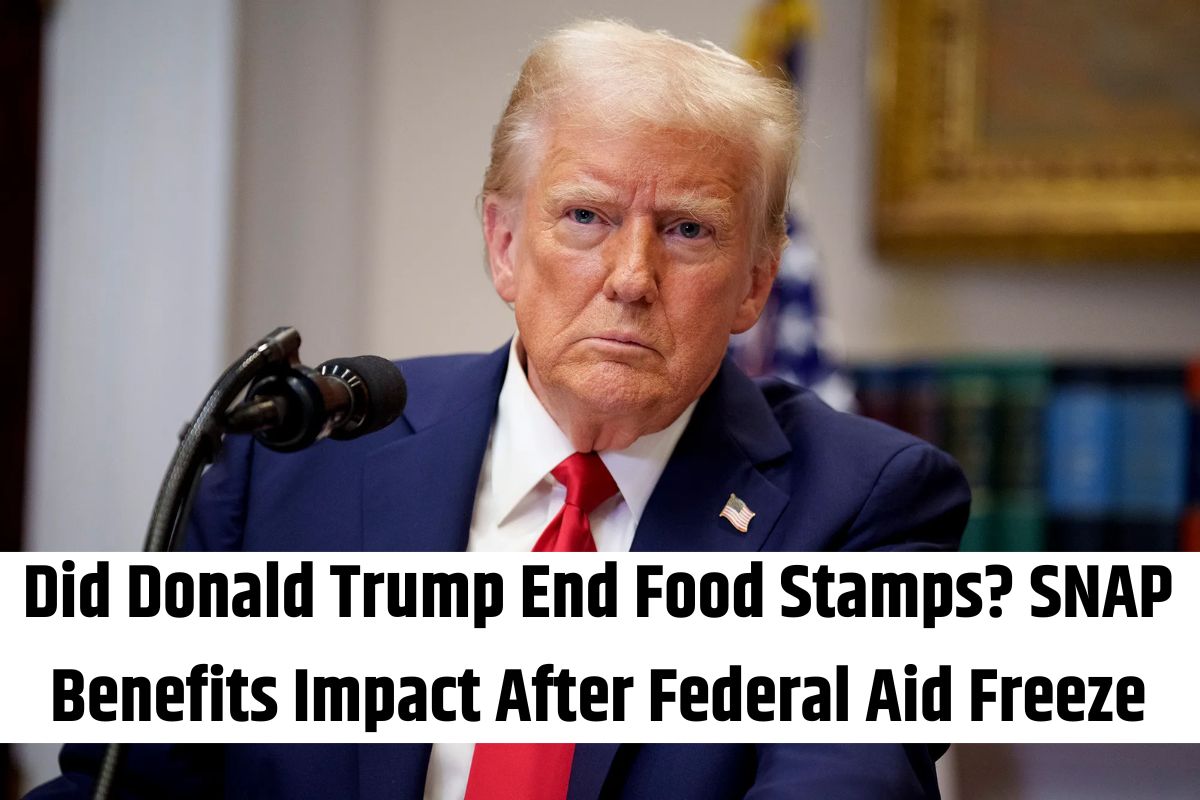During his second term, President Donald Trump’s administration took steps to implement changes within the federal government, including a significant directive that temporarily froze federal grants and loans. The order, issued by the Office of Management and Budget (OMB), aimed to halt payments to various federal financial assistance programs. Although a federal judge intervened to temporarily halt the freeze, the move left millions of beneficiaries worried about potential disruptions to essential programs like food assistance and healthcare.
In response to these concerns, White House Press Secretary Karine Jean-Pierre addressed the situation during a press briefing. She reassured the public that critical assistance programs would remain unaffected.
“Social Security benefits, Medicare, food stamps, welfare benefits, and direct assistance to individuals will not be impacted by this pause,” Jean-Pierre confirmed. She added that the administration remains committed to being responsible stewards of taxpayer money, a principle that President Trump emphasized throughout his campaign.
The SNAP Program: A Lifeline for Millions
The Supplemental Nutrition Assistance Program (SNAP) is one of the most widely used federal assistance programs, providing essential support to millions of American households. Currently, over 42 million people rely on SNAP benefits to help purchase food each month. According to recent data, approximately 80% of households receiving SNAP benefits include a child, an elderly individual, or a person with a disability. In recent years, the federal government has allocated over $110 billion annually to fund the program.
SNAP benefits are distributed monthly via an electronic benefits transfer (EBT) card, functioning like a debit card. Beneficiaries can use the EBT card to purchase food at authorized grocery stores and retailers. On average, each recipient receives about $195 per month to help cover the cost of groceries.
While the freeze on federal grants has raised alarm bells, especially for low-income families relying on assistance, the government has assured the public that vital support programs like SNAP will continue to operate without interruption.
Frequently Asked Questions (FAQs)
What was the freeze on federal grants and loans announced by the Trump administration?
The Trump administration temporarily froze federal grants and loans through an order issued by the Office of Management and Budget (OMB). The aim was to halt payments to certain federal financial assistance programs. However, this order was temporarily blocked by a federal judge.
Will Social Security, Medicare, and food assistance programs be affected by this freeze?
No. White House Press Secretary Karine Jean-Pierre assured that Social Security benefits, Medicare, food stamps, welfare benefits, and other direct assistance programs will not be impacted by this freeze. These vital programs will continue without interruption.
What is the SNAP program, and how does it help American families?
The Supplemental Nutrition Assistance Program (SNAP) helps over 42 million Americans by providing financial assistance to purchase food. Households receiving SNAP benefits use an Electronic Benefits Transfer (EBT) card, similar to a debit card, to buy food at approved retailers. The average monthly benefit per person is about $195.

How many people rely on SNAP benefits in the United States?
More than 42 million Americans rely on SNAP benefits, with a large portion of these households consisting of children, elderly individuals, or those with disabilities.
How much does the federal government spend on SNAP annually?
The federal government has been spending over $110 billion annually on the SNAP program in recent years, providing critical food assistance to millions of Americans.
How are SNAP benefits distributed?
SNAP benefits are distributed monthly through an Electronic Benefits Transfer (EBT) card. The card functions like a debit card and can be used at participating grocery stores and retailers to purchase food.
Will the freeze on federal grants affect other government programs?
While the freeze was intended to impact certain financial assistance programs, crucial support programs like SNAP, Social Security, and Medicare will remain unaffected as per the White House’s statement.
What is the average benefit for an individual receiving SNAP assistance?
On average, individuals receive around $195 in SNAP benefits per month to help cover the cost of food.



